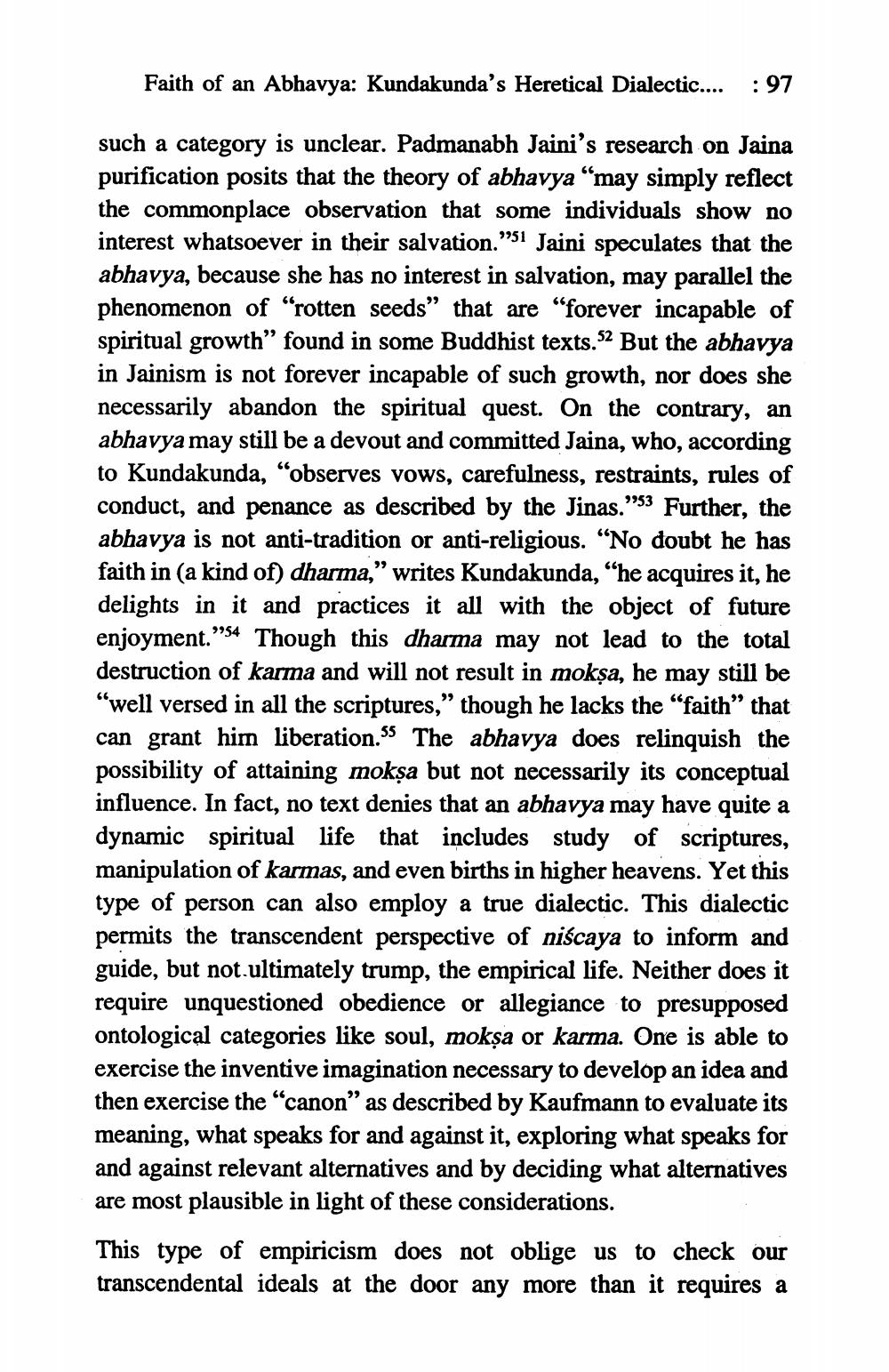________________
Faith of an Abhavya: Kundakunda's Heretical Dialectic....
: 97
such a category is unclear. Padmanabh Jaini's research on Jaina purification posits that the theory of abhavya “may simply reflect the commonplace observation that some individuals show no interest whatsoever in their salvation."1 Jaini speculates that the abhavya, because she has no interest in salvation, may parallel the phenomenon of "rotten seeds” that are “forever incapable of spiritual growth” found in some Buddhist texts.52 But the abhavya in Jainism is not forever incapable of such growth, nor does she necessarily abandon the spiritual quest. On the contrary, an abhavya may still be a devout and committed Jaina, who, according to Kundakunda, “observes vows, carefulness, restraints, rules of conduct, and penance as described by the Jinas.”53 Further, the abhavya is not anti-tradition or anti-religious. “No doubt he has faith in (a kind of) dharma," writes Kundakunda, "he acquires it, he delights in it and practices it all with the object of future enjoyment.”S4 Though this dharma may not lead to the total destruction of karma and will not result in mokşa, he may still be "well versed in all the scriptures,” though he lacks the “faith” that can grant him liberation." The abhavya does relinquish the possibility of attaining moksa but not necessarily its conceptual influence. In fact, no text denies that an abhavya may have quite a dynamic spiritual life that includes study of scriptures, manipulation of karmas, and even births in higher heavens. Yet this type of person can also employ a true dialectic. This dialectic permits the transcendent perspective of niscaya to inform and guide, but not.ultimately trump, the empirical life. Neither does it require unquestioned obedience or allegiance to presupposed ontological categories like soul, mokṣa or karma. One is able to exercise the inventive imagination necessary to develop an idea and then exercise the “canon” as described by Kaufmann to evaluate its meaning, what speaks for and against it, exploring what speaks for and against relevant alternatives and by deciding what alternatives are most plausible in light of these considerations.
This type of empiricism does not oblige us to check our transcendental ideals at the door any more than it requires a




